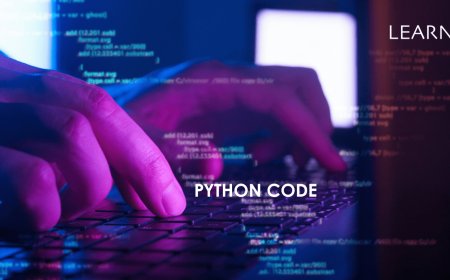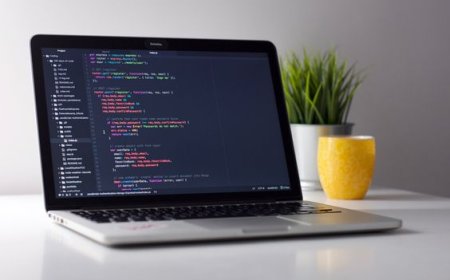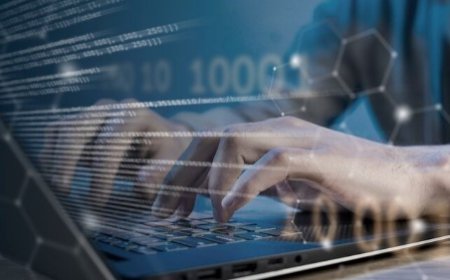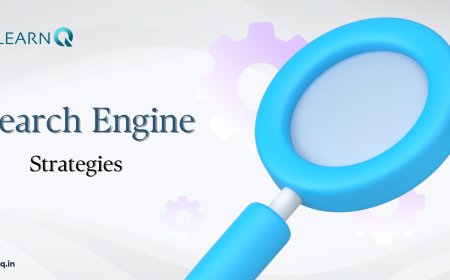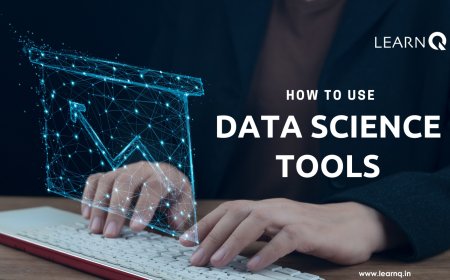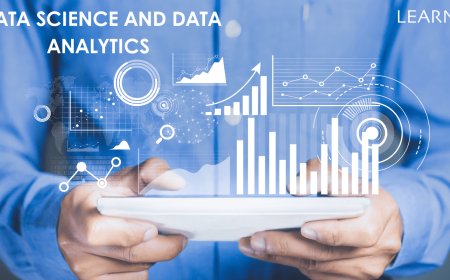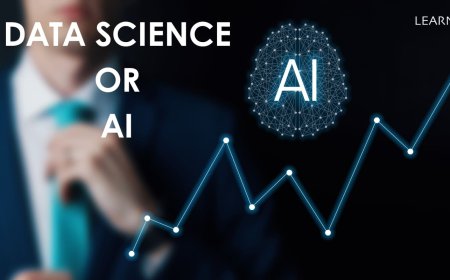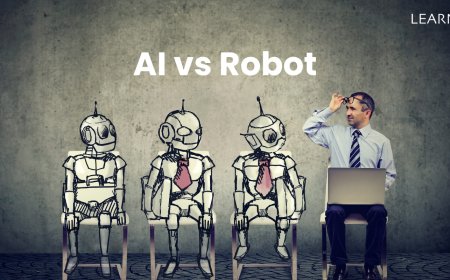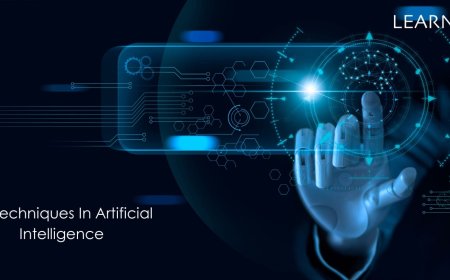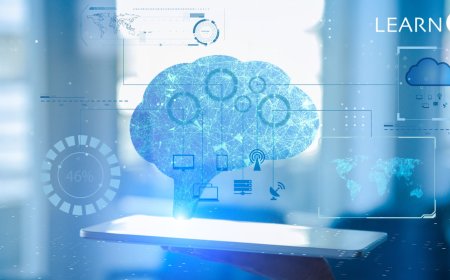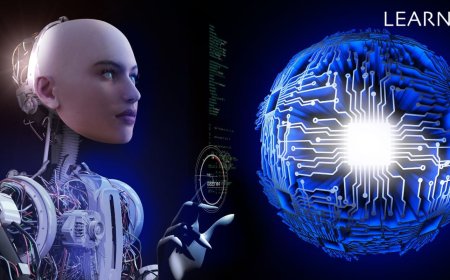Important Skills for Data Scientist Programmers
Learn important skills for Data Scientist Programmers. Get good at programming, analyzing data, machine learning, and more to succeed in this changing field.

In data science, being a Data Scientist Programmer is important. They're like the bridge between raw data and useful information that helps companies make smart decisions. As more and more businesses use data to make choices, the need for people who are good at both analyzing data and coding is growing fast. To be good at this job, you need to have a bunch of skills that let you understand data and turn it into solutions. One of the main things a Data Scientist Programmer needs to know is the basics of data science. This means being good at stuff like understanding statistics, knowing how machine learning works, and being able to make data look easy to understand through charts and graphs. If you're great at these basics, you can find trends and interesting things in big piles of data, which helps companies know what to do next.
But it's not just about being good with numbers and code. You also need to be able to talk about what you find with other people who might not know as much about data. Whether it's explaining your results to bosses or working with different teams, being able to explain things simply is important. And because the world of data science is always changing, you need to be ready to learn new stuff all the time. Technology and ways of doing things are always evolving in this field, so you have to keep up with the latest trends and ideas to stay ahead.
Understanding the Changing World of Data Science: What's Happening Now
Technology is moving fast, and one big area where it's making a huge impact is data science. Data science helps us make smart decisions and find new ways to grow and innovate in different industries. But it's not staying the same—it's always changing. This means there are both challenges and exciting opportunities for people and companies who work with data.
Current situation:
1. New improvements in technology like machine learning and big data tools make solutions smarter.
2. It's tough to bring together and analyze lots of different data from many places.
3. Making sure we use data ethically, and respecting things like privacy and fairness, is important. Rules like GDPR and CCPA make sure companies follow these ethics.
4. Working together with different experts is crucial for doing data science projects well.
5. There aren't enough skilled data scientists available, so finding the right people for the job is hard.
Future outlook:
1. We'll keep seeing new and better ways to process and understand data thanks to ongoing tech innovations.
2. Using data in a good, ethical way will be even more important, and there will be stricter rules and guides to follow.
3. More programs will pop up to teach people about data science, helping fill the gap in experts.
4. Businesses will rely even more on data to make decisions and grow.
Challenges Faced by Data Scientist Programmers and What They Mean
Data scientist programmers have a tough job. They work with lots of data and have to figure out important stuff from it. But there are many problems they run into. Let's talk about them in simpler terms:
1. Bad Data Quality: Sometimes, the data they get isn't very good. It might have mistakes or missing parts. Fixing these problems takes a lot of time and effort.
2. Handling Big Data: When there's a ton of data to work with, it can slow things down. Data scientists need to make sure their programs can handle all that data without crashing.
3. Choosing the Right Tools: There are many ways to analyze data. Figuring out which one to use can be hard. And even when they pick one, they often have to tweak it a lot to get it to work just right.
4. Understanding the Results: Data scientists don't just want to know what the data says; they want to know why. But sometimes, it's hard to understand why a program makes the predictions it does.
5. Avoiding Biases: Sometimes, the data itself is biased. This can lead to unfair results. Data scientists need to be careful to make sure their programs don't unfairly favor certain groups.
6. Protecting Data: Data often contains private information. Keeping it safe from hackers is important. But they also need to make sure they're not using the data in ways that people wouldn't like.
7. Working with Experts: Data scientists often need help from people who know a lot about the subject they're studying. But it can be hard to understand each other because they speak different "languages."
8. Keeping Up with Changes: The world of data science is always changing. New tools and techniques come out all the time. Data scientists have to keep learning to stay good at their jobs.
What skills do data scientist need to be successful?
Data scientist programmers need to be good at a few different things to do well in their jobs. First, they need to know how to use programming languages like Python, R, and SQL. These languages help them work with data, analyze it, and make it easy to understand. They also need to know about statistics and math so they can find important information in big sets of data. They should be good at solving problems, like figuring out patterns or trends in the data. It's also important for them to know about machine learning, which helps them make predictions based on data. They need to be able to explain their findings to people who might not know much about programming or data science. And because things change a lot in this field, they should be ready to keep learning new stuff all the time. If they have all these skills, they can do a great job in data science and help solve problems in different industries.
Skills for Data Scientist Programmers Made Simple
In data science, knowing how to code is important. Whether you're organizing data, making predictions, or using fancy math stuff, being good at programming is key. This blog post will talk about the main skills that data scientists who code should be good at.
1. Being Good at Programming Languages:
-
Python: Lots of people in data science use Python because it's easy to learn, can do lots of different things, and has a bunch of helpful tools like NumPy, Pandas, and scikitlearn.
-
R: Even though Python is more popular, R is still useful, especially for stats and making graphs. It's good for certain things Python might not be as great at.
2. Handling and Analyzing Data:
-
Pandas: This is like a toolbox in Python that helps you work with data easily. You can clean it up, change it around, and look for interesting stuff in it.
-
SQL: Knowing SQL is important because it helps you get data out of big databases, which is something data scientists often need to do.
3. Making Data Pretty:
-
Matplotlib: This is a tool in Python for making graphs and charts. It's handy for showing off your data in different ways.
-
Seaborn: This is kind of like Matplotlib's sidekick. It makes it even easier to make nice-looking graphs, especially if you're trying to show complicated things in your data.
4. Doing Fancy Math and Making Predictions:
-
Scikitlearn: This is a big library in Python that helps you do machine learning. It's got tools for making predictions and figuring out patterns in your data.
-
StatsModels: This is another Python tool, but it's more for doing stats and testing out ideas, like if you want to see if one thing affects another thing.
5. Keeping Track of Changes:
-
Git: This is like a big notebook for your code. It helps you keep track of what you've done and lets other people work on it too. It's super helpful when you're working with a team.
6. Solving Problems and Thinking Like a Detective:
-
Being Efficient: This just means trying to make your code run fast and not use up too much computer power. It's important when you're dealing with lots of data or complicated math.
-
ProblemSolving: Data scientists need to be good at figuring out how to solve problems. They take questions from businesses and find ways to answer them using data and math.
The field of data science is changing fast. To be a good Data Scientist, you need a mix of different skills. You should know how to use programming languages like Python and R and understand statistics and machine learning. Also, you need to be good at solving problems and explaining your findings. Technology is always getting better, so you have to keep learning new things to stay ahead. By getting better at what you do and keeping up with changes in data science, you can use data to make smart decisions and solve important problems.
